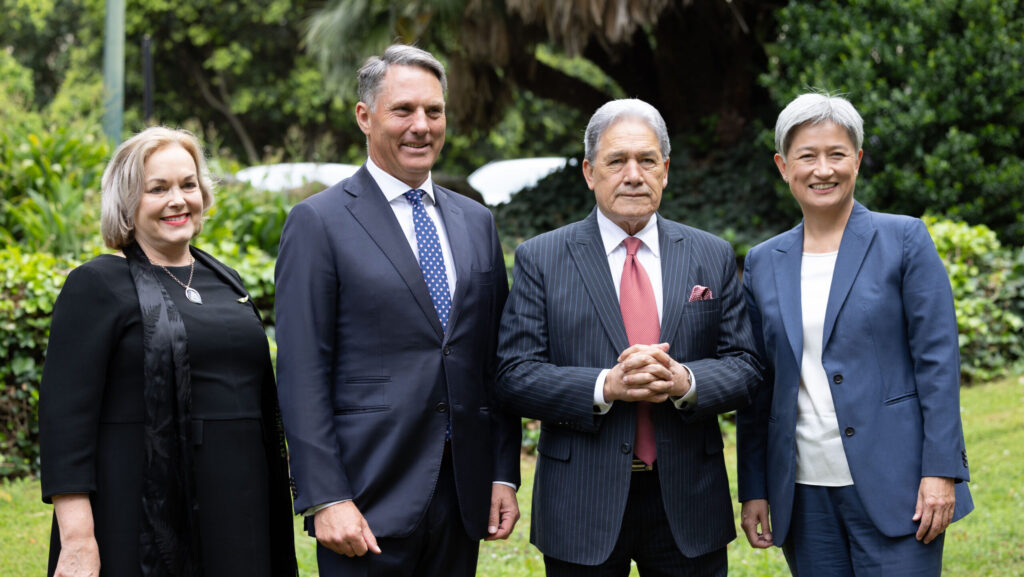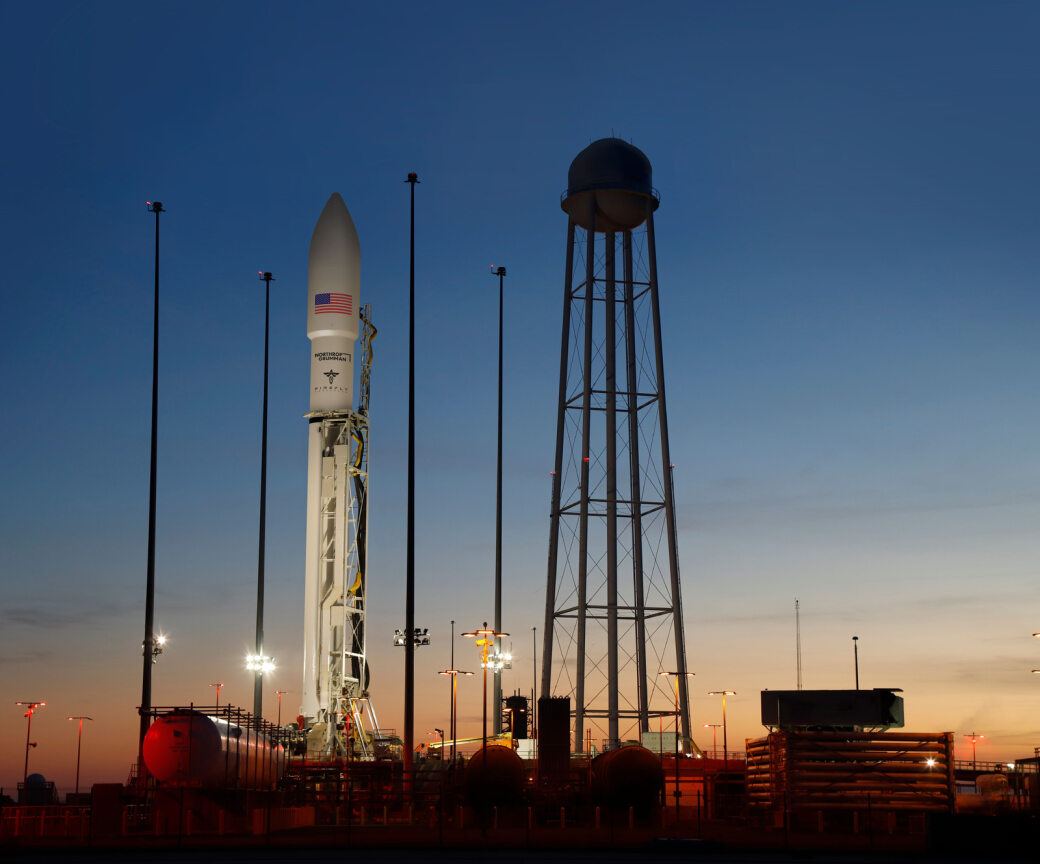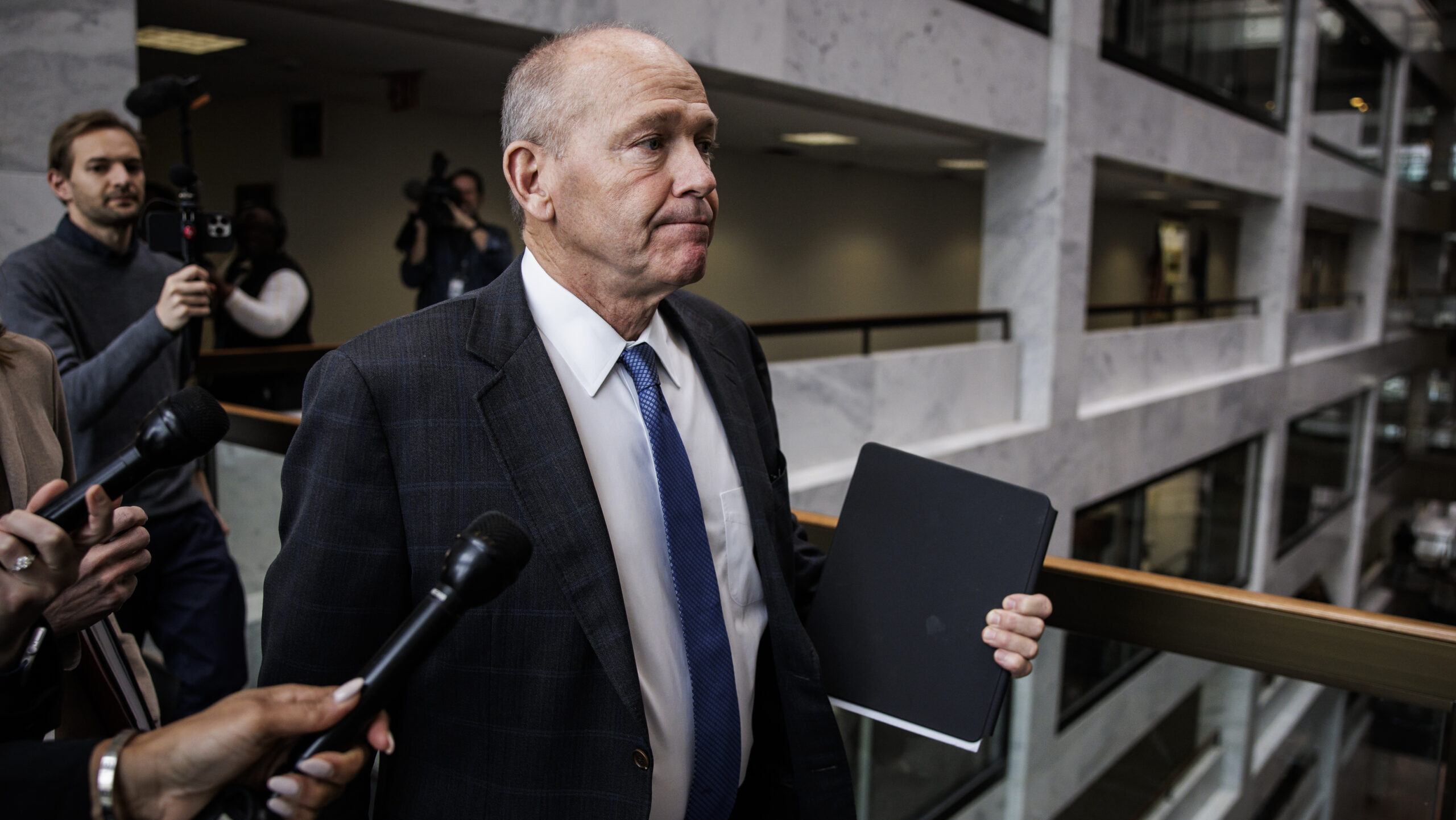
The foreign and defense ministers of Australia and New Zealand met Feb.1 in Melbourne, Australia. Judith Collins (l), Richard Marles, Winston Peters, Penny Wong (r). (Australian Department of Foreign Affairs and Trade)
SYDNEY — New Zealand took a step closer to participating in the trilateral AUKUS security arrangement today, announcing that it will examine “opportunities” related to the pact’s tech-heavy initiatives.
There are no indications New Zealand will join the effort to buy and build nuclear attack submarines — the core task Australia, United Kingdom and America have set themselves, known as PIllar I — but today the ministers said Australia would brief their Pacific island breathren about Pillar II, the so-far inchoate task of developing and fielding advanced technologies such as quantum, cyber, autonomy, artificial intelligence, hypersonics, and electronic warfare.
“Australian officials have been asked to work together with New Zealand officials to see some of the opportunities that are available in Aukus Two for New Zealand,” New Zealand’s Defence Minister Judith Collins said at a news conference.
But while Collins acknowledged her country had not yet figured out exactly what it could contribute to Pillar II, space, she said in interviews today, could be one area.
“The opportunities that are open to our space and technology sectors are actually immense,” she said, according to The Straits Times.
In a joint statement, Collins, New Zealand Foreign Minister Winston Peters, Australian Foreign Minister Penny Wong and Defense Minister Richard Marles, said they had “discussed the AUKUS trilateral partnership and agreed it made a positive contribution toward maintaining peace, security and prosperity in the Indo-Pacific.”
“Ministers also welcomed the Quad‘s commitment to an open, stable and prosperous Indo-Pacific region and its positive and practical agenda to support Indo-Pacific countries’ priorities and needs,” the statement said.
In a sign of just how much China has driven New Zealand from its decades-long position as a staunch opponent of nuclear weapons and sometimes uneasy ally of Australia and the West, the joint statement said:
“Ministers agreed all elements of both countries’ tools of statecraft need to be harnessed in support of our collective interests. Our strategic circumstances (that would be China) require whole-of-government and whole-of-nation coordinated and focused statecraft, of which diplomacy and defence are both core elements.”
The antipodean states expressed “serious concern” about “an intensification of destabilising activities, including the continued militarisation of disputed features; unsafe and unprofessional behaviour at sea and in the air; and other dangerous actions by military, coast guard vessels and maritime militia” in the South and East China seas.
In a statement likely to attract Chinese ire, the statement included the two countries’ “will to continue deepening relations with Taiwan in the economic, trade, and cultural fields as well as enhancing development coordination in the Pacific.”
Already bound with the United States by the 72-year-old ANZUS Treaty, Australia and New Zealand said they will increase integration between their militaries, including by building “common capability, exchanges of senior military officers and increased participation in warfighting exercises.”
They will also work together with Pacific countries “to strengthen regional cooperation and interoperability,” which will include joint exercises and training.
The ministers made careful note in their statement of a commitment “to shape a peaceful and secure world, where disputes are settled through institutions, and where the sovereignty of all states — including those in our region — is respected, and human rights are promoted and protected.” In a clear shot at China’s roughshod use of money and its military in the Pacific islands, they said they “opposed economic coercion in all its forms and recognised the importance of multilateral institutions and norms which promote free, fair, and open international trade.”
China’s pushing and shoving has already had some affects, which clearly please New Zealand. One of the commitments the United States made to the Pacific Islands in the wake of the Solomon Islands security pact with China was to recognize the Cook Islands as an independent state, which it did in September last year. The nominally independent islands were assisted by New Zealand, which provided its defense, although the islands decided their own defense and foreign policies. The US also recognized the tiny Pacific state of Nieu last year.












